Text
Omg??? I've been using Dropout for about threee months and wasn't aware we had Game Changer lore??????
so dropout's gamechanger has been going thru an ARG, where the prevailing theory is that sam reich was replaced after Escape the Greenroom with Samual Dalton (acclaimed magician/time traveler).
My addition is this: after Escape the Greenroom, Sam has been looking at his hands every time he says "I am your host, Sam Reich" with astonishment.






Like he's amazed that this is his body. He also annunciates the 'I' in 'I am your host' more noticeably, but it is not as consistent. I noticed it before, but figured it was just a new season refresh for intros.
He does not do this in any prior episode, like The Bachelor. The episodes right after Escape the Greenroom, the Battle Royale series, Sam does not do his normal intro after introducing the players.

Interestingly, in the Escape the Greenroom episode itself, he does not look at his hands but the screen glitches before he says "I've been here the whole time" (similar to the prominent glitching in Deja Vu).

this is what I've been munching on. sam you slimy dog.
3K notes
·
View notes
Text
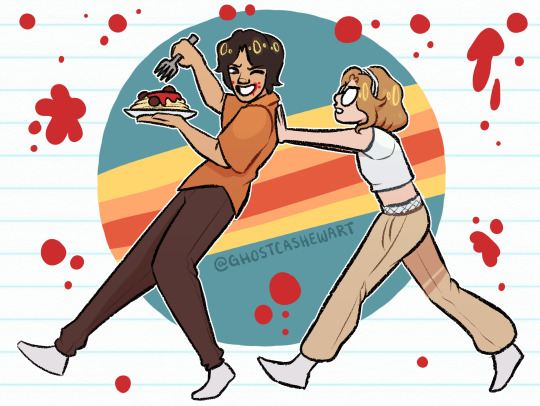
peak sibling energy from grant and siobhan on game changer
2K notes
·
View notes
Text
Normal work emergencies: “They need me to come in and fix a system that broke down.”
Dropout work emergencies: “They need me to come in and throw pasta at comedians.”
5K notes
·
View notes
Text
It's getting harder and harder to force myself to smile as the clients come in
0 notes
Text
Your church-going, God-worshipping sister adopted a small child and you’re excited to see them. But when you do, the child is a menace. They’re throwing things everywhere, setting furniture on fire with seemingly nothing, chanting in Latin to summon demons, but the weirdest thing is that your sister doesn’t seem to mind.
152K notes
·
View notes
Text
Your church-going, God-worshipping sister adopted a small child and you’re excited to see them. But when you do, the child is a menace. They’re throwing things everywhere, setting furniture on fire with seemingly nothing, chanting in Latin to summon demons, but the weirdest thing is that your sister doesn’t seem to mind.
152K notes
·
View notes
Text
How many times can the same thing break your heart?
277K notes
·
View notes
Text
actually there were 0 time travellers on the Titanic, because the time cops have an entire outpost to safeguard that one particular point in history. every rookie spends a least a month on Titanic duty and they all complain bitterly about it since it is, essentially, the time travel equivalent of being the guard who has to stop tourists from licking the Liberty Bell.
123K notes
·
View notes
Text
I laugh a lot when I'm with my friends, but not because they're funny, no.
It's because I've known them for so long, my brain thinks it already always know what they're gonna say next. But then, as I'm already giggling over their stories, they say something so incredible random that throws me out of loop so badly I have no other option but perish
0 notes
Text
I laugh a lot when I'm with my friends, but not because they're funny, no.
It's because I've known them for so long, my brain thinks it already always know what they're gonna say next. But then, as I'm already giggling over their stories, they say something so incredible random that throws me out of loop so badly I have no other option but perish
0 notes
Text
Writing advice #?: Have your characters wash the dishes while they talk.
This is one of my favorite tricks, picked up from E.M. Forester and filtered through my own domestic-homebody lens. Forester says that you should never ever tell us how a character feels; instead, show us what those emotions are doing to a character’s posture and tone and expression. This makes “I felt sadness” into “my shoulders hunched and I sighed heavily, staring at the ground as my eyes filled with tears.” Those emotions-as-motions are called objective correlatives. Honestly, fic writers have gotten the memo on objective correlatives, but sometimes struggle with how to use them.
Objective correlatives can quickly become a) repetitive or b) melodramatic. On the repetitive end, long scenes of dialogue can quickly turn into “he sighed” and “she nodded” so many times that he starts to feel like a window fan and she like a bobblehead. On the melodramatic end, a debate about where to eat dinner can start to feel like an episode of Jerry Springer because “he shrieked” while “she clenched her fists” and they both “ground their teeth.” If you leave the objective correlatives out entirely, then you have what’s known as “floating” dialogue — we get the words themselves but no idea how they’re being said, and feel completely disconnected from the scene. If you try to get meaning across by telling us the characters’ thoughts instead, this quickly drifts into purple prose.
Instead, have them wash the dishes while they talk.
To be clear: it doesn’t have to be dishes. They could be folding laundry or sweeping the floor or cooking a meal or making a bed or changing a lightbulb. The point is to engage your characters in some meaningless, everyday household task that does not directly relate to the subject of the conversation.
This trick gives you a whole wealth of objective correlatives. If your character is angry, then the way they scrub a bowl will be very different from how they’ll be scrubbing while happy. If your character is taking a moment to think, then they might splash suds around for a few seconds. A character who is not that invested in the conversation will be looking at the sink not paying much attention. A character moderately invested will be looking at the speaker while continuing to scrub a pot. If the character is suddenly very invested in the conversation, you can convey this by having them set the pot down entirely and give their full attention to the speaker.
A demonstration:
1
“I’m leaving,” Anastasia said.
“What?” Drizella continued dropping forks into the dishwasher.
2
“I’m leaving,” Anastasia said.
Drizella paused midway through slotting a fork into the dishwasher. “What?”
3
“I’m leaving,” Anastasia said.
Drizella laughed, not looking up from where she was arranging forks in the dishwasher. “What?”
4
“I’m leaving,” Anastasia said.
The forks slipped out of Drizella’s hand and clattered onto the floor of the dishwasher. “What?”
5
“I’m leaving,” Anastasia said.
“What?” Drizella shoved several forks into the dishwasher with unnecessary force, not seeming to notice when several bounced back out of the silverware rack.
See how cheaply and easily we can get across Drizella’s five different emotions about Anastasia leaving, all by telling the reader how she’s doing the dishes? And all the while no heads were nodded, no teeth were clenched.
The reason I recommend having it be one of these boring domestic chores instead of, say, scaling a building or picking a lock, is that chores add a sense of realism and are low-stakes enough not to be distracting. If you add a concurrent task that’s high-stakes, then potentially your readers are going to be so focused on the question of whether your characters will pick the lock in time that they don’t catch the dialogue. But no one’s going to be on the edge of their seat wondering whether Drizella’s going to have enough clean forks for tomorrow.
And chores are a cheap-n-easy way to add a lot of realism to your story. So much of the appeal of contemporary superhero stories comes from Spider-Man having to wash his costume in a Queens laundromat or Green Arrow cheating at darts, because those details are fun and interesting and make a story feel “real.” Actually ask the question of what dishes or clothing or furniture your character owns and how often that stuff gets washed. That’s how you avoid reality-breaking continuity errors like stating in Chapter 3 that all of your character’s worldly possessions fit in a single backpack and in Chapter 7 having your character find a pair of pants he forgot he owns. You don’t have to tell the reader what dishes your character owns (please don’t; it’s already bad enough when Tolkien does it) but you should ideally know for yourself.
Anyway: objective correlatives are your friends. They get emotion across, but for low-energy scenes can become repetitive and for high-energy scenes can become melodramatic. The solution is to give your characters something relatively mundane to do while the conversation is going on, and domestic chores are not a bad starting place.
26K notes
·
View notes
Text
It's a lot healthier to go for a daily walk than to sign up for a gym membership you won't be using because you hate that kind of exercise. It's a lot healthier to eat a frozen meal than to skip a meal because you were too tired to cook something healthy. It's a lot healthier to take a quick shower than to procrastinate an elaborate routine for days. Don't aim so high that you won't be hitting anything!
203K notes
·
View notes
Text
That would make such a sick book. Just imagine a story about a little quasi moon hopping around the universe. So many things for little mate to discover.
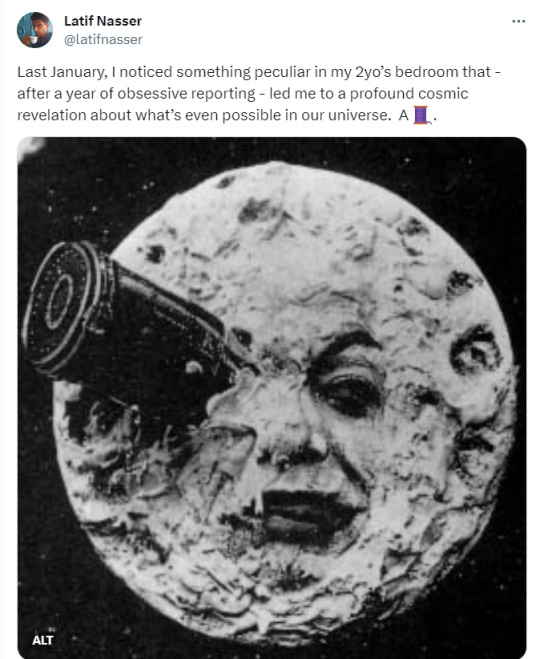


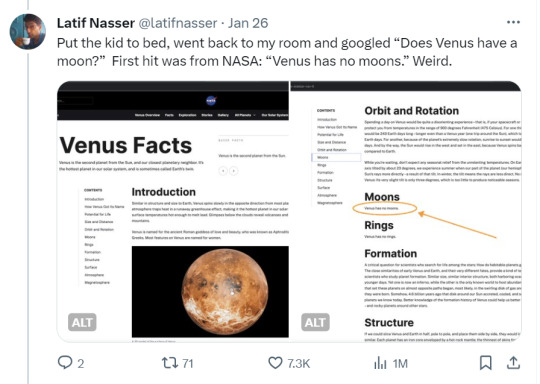












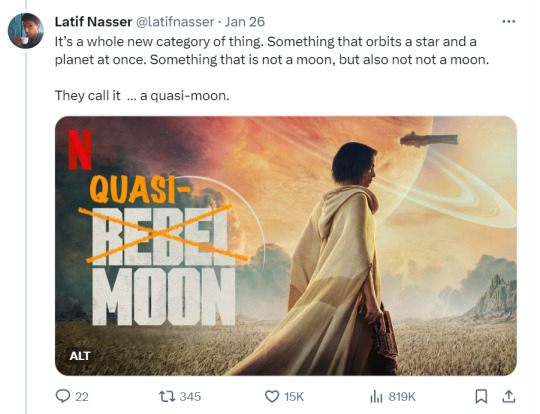





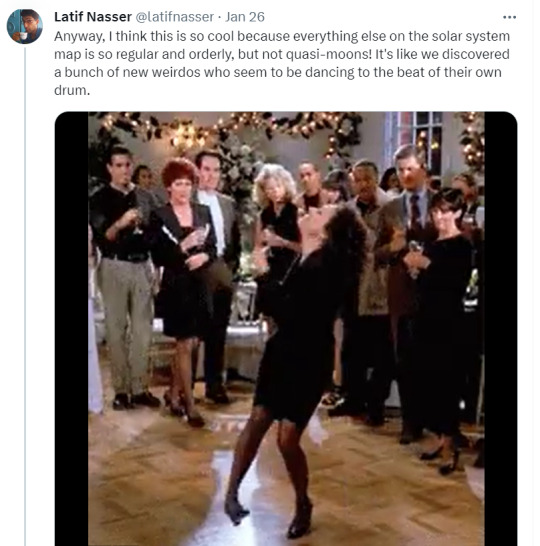



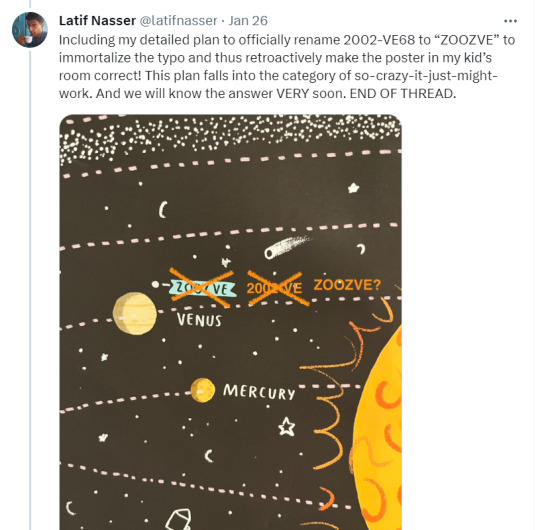
Zoozve, my beloved
118K notes
·
View notes
Text
If I ever became a famous author, I would write silly fanfiction about my characters and not reveal that it’s me. See if people realize or not lol
#hell yeah#i would say the most random (but true) things about the characters#and then laugh when people said I was delusional and didn't understand them
7K notes
·
View notes
Text
That feeling of when you find an old WIP you kinda gave up on and you're like "damn, I wanna read that", but you can't because you haven't written it
0 notes
Text
That feeling of when you find an old WIP you kinda gave up on and you're like "damn, I wanna read that", but you can't because you haven't written it
0 notes
